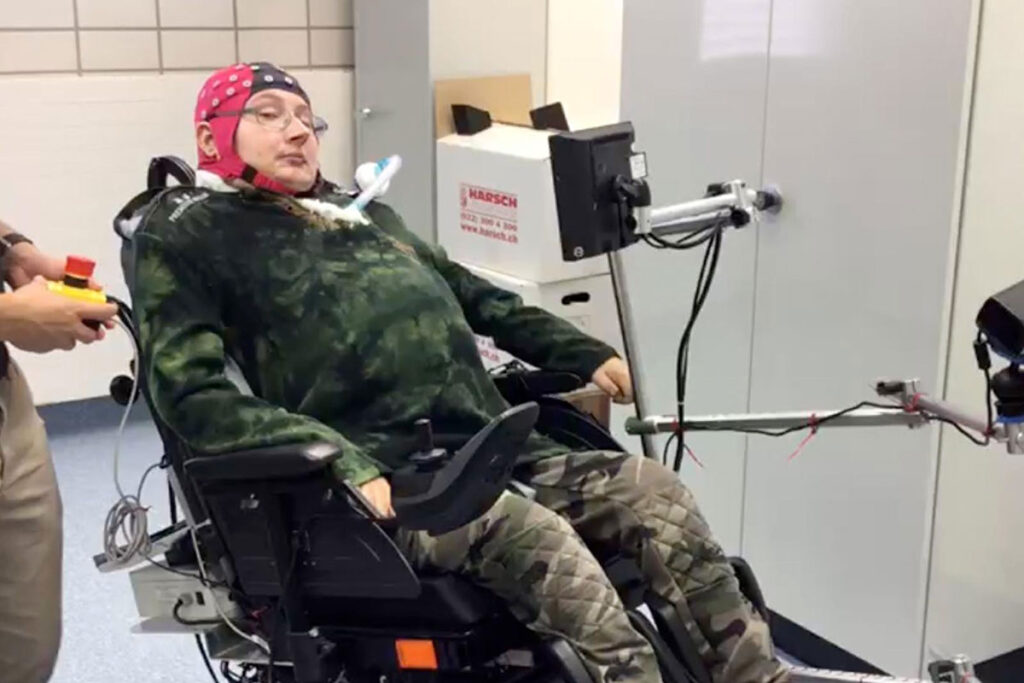Researchers at The University of Texas at Austin use new brain-machine interface technology to allow tetraplegics to control their wheelchairs through mind control. In this one of the first studies of its kind, several patients with severe motor disabilities were able to maneuver a wheelchair that translates their thoughts into movement.

While the University of Texas at Austin’s research is less ambitious than the four-limb robotic system, which is also controlled by brain signals, it has shown real-world promise. It has the potential to grant freedom of mobility that is less costly and easier to implement.
With training, quadriplegics can perfectly navigate normal, cluttered spaces unaided. That, my friends, is a technology for the good. We are totally behind in do-good research. Spiritually, of course, because we have no money to contribute. Ugh.
Anywho, the study, which was published in the journal iScience recently (on November 17), is an important step forward for brain-machine interfaces, and it could benefit development such as those by CEA (French Alternative Energies and Atomic Energy Commission) in Grenoble which also brain-computer system to enable tetraplegic patient to control a special exoskeleton suit.
The biggest boon of this study is that it is noninvasive (whereas CEA’s development is semi-invasive).
“Participants wore a cap covered with electrodes that recorded brain electrical activity, known as an electroencephalogram (EEG). An amplifying device sent those electrical signals to a computer that interpreted each participant’s intentions and translated them into movement.”
You may learn in-depth about the newest development over at iScience, as well as on the Neuroscience and UT Austin Chandra Department of Electrical and Computer Engineering website.
Featured photo by Marcus Aurelius on Pexels.
Additional image: UT Austin.
UT Austin via Neuroscience.



